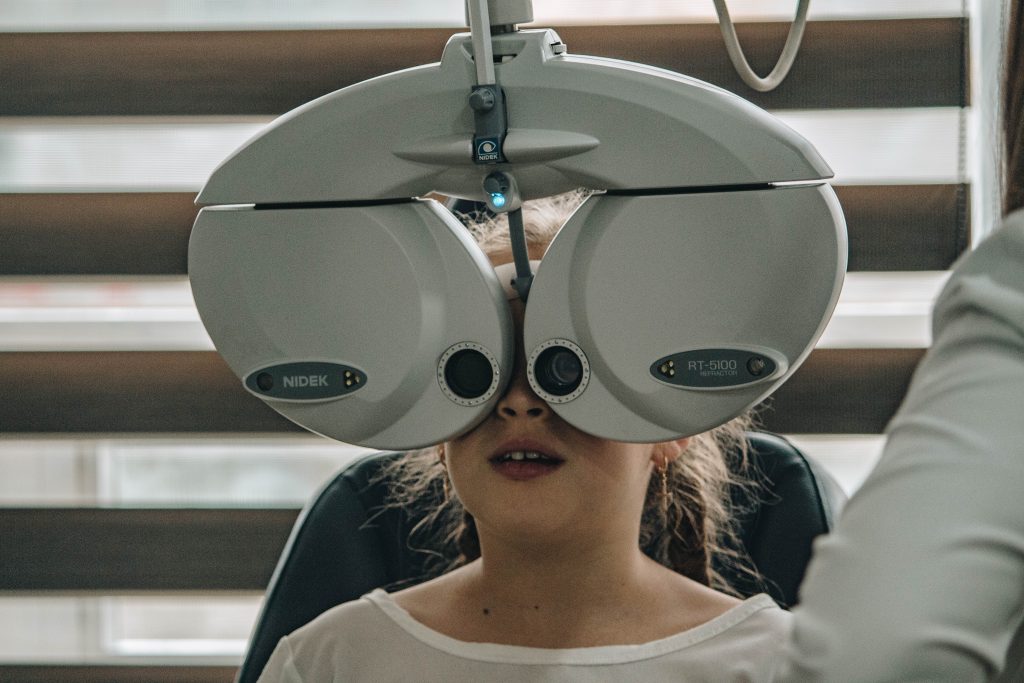Eye Doctors Nationwide Have Been Breaking The Law And Yours Likely Is, Too
Eye doctors who fail to give patients their contact lens or glasses prescriptions at the end of an appointment are violating the FTC's contact lens and glasses rules.
This article is more than 2 years old

In 2020, the Federal Trade Commission (FTC), which is a federal agency that works to ensure business providers are following regulations and not participating in fraudulent activity, updated the Contact Lens Rule. This rule now requires optometrists and ophthalmologists to give patients a copy of their contact lens prescriptions at the end of a contact lens appointment, even if the patient doesn’t ask for it. It appears many eye doctors in the nation are not following this rule so that patients do not go to another seller to fill their prescriptions.
According to Komonews, “In late February, the FTC sent cease and desist letters to 24 eye care prescribers warning them that, based on customer complaints, they appear to have violated the Contact Lens Rule, and in some cases the Eyeglass Rule, by not providing patients with copies of their prescriptions. Consumer complaints also indicated, the letters said, that patients were required to make full payment at the time of service to get their prescriptions, even though they’d provided proof of insurance.” This implies many eye doctors are getting patients to spend more money at their facility which results in a violation of the FTC.
If you are worried your eye doctor is breaking the law and you are not sure, here is what the FTC requires the eye doctor to do and what you should ensure they are providing. The FTC’s website states, first prescribers must give the patient a copy of their contact lens prescription at the end of a contact lens fitting, even if the patient does not ask for it, even if patients are renewing their prescription.
Eye doctors are required to ask patients to sign a statement confirming they got a copy of their prescription and if eye doctors provide you with these prescriptions digitally, they are required to keep your records or proof that the patient agreed to digital delivery for at least three years. Eye doctors are not allowed to require a patient to sign confirmation before they give you the prescription. The patient must only sign confirmation after they receive a copy of their prescription.
Next, the FTC states, “A patient who wants to buy contact lenses from another seller may give a copy of the prescription to that seller. If a patient doesn’t give the prescription to that seller, the seller must get the prescription information from the patient and send it to a prescriber to verify before selling the lenses.” If this is the case, be sure your eye doctor is verifying the prescription!
In addition, the FTC says eye doctors are not allowed to require patients to buy contact lenses, pay additional fees, or sign a waiver or release in exchange for the prescription copy.
However, the FTC does mention that eye doctors are allowed to “require a patient to pay for the eye exam, fitting, and evaluation before giving them a copy of the contact lens prescription, but only if they also require immediate payment from a patient whose eye exams show no need for glasses, contact lenses, or other corrective eye care products. Proof of insurance coverage counts as payment for purposes of this requirement.”
Overall, ensure your eye doctor is following the law set by the FTC, you are entitled to a copy of your prescription, and there is action you can take if your eye doctor is violating your rights. The FTC letter states that prescribers not following the law are subject to up to $50,120 per violation. You are able to report any fraud here at reportfraud.ftc.gov.




